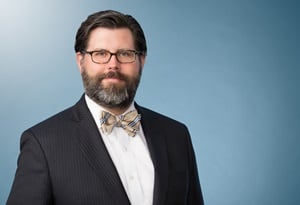Supreme Court Decides Biestek v. Berryhill
On April 1, 2019, the Supreme Court decided Biestek v. Berryhill, No. 17-1184, holding that a Social Security Administration (SSA) vocational expert’s opinion may constitute “substantial evidence” supporting an administrative law judge’s (ALJ) factual findings, even when the expert refuses to disclose the data underlying the opinion.
During an informal hearing on an applicant’s eligibility for benefits under the Social Security Act, 42 U.S.C. § 301 et seq., an SSA administrative law judge relied on expert testimony about the availability of certain jobs to deny the applicant — former construction worker Michael Biestek — benefits. The vocational expert based her testimony on private market-survey data but refused to provide that data to the applicant. The presiding ALJ permitted her to withhold it.
The applicant challenged the ALJ’s decision denying him benefits in federal district court. He argued that because the vocational expert refused to disclose the data corroborating her opinion, her opinion could not have constituted “substantial evidence” supporting the ALJ’s factual findings, so the district court was not required to adopt those findings as “conclusive” under 42 U.S.C. § 405(g).
The district court rejected the applicant’s argument. The Sixth Circuit affirmed, departing from the Seventh Circuit’s contrary holding. The Supreme Court granted certiorari.
In affirming the Sixth Circuit, the Supreme Court rejected the applicant’s proposed categorical rule ― "that the testimony of a vocational expert who . . . refuses a request for supporting data about job availability can never clear the [Act’s] substantial-evidence bar.” The Court reiterated that “substantial evidence” is a low threshold that, in this context, means “more than a mere scintilla.” It confirmed that while “best practice” is for the SSA and its experts to produce supporting data, the rules of evidence do not apply to the SSA’s informal hearings, so even without that data, an expert’s cogent testimony may be enough to constitute “substantial evidence.” The Court did not analyze whether “substantial evidence” supported the ALJ’s findings in the applicant’s case, despite its refusal to adopt the applicant’s proposed categorical rule.
Justice Kagan announced the judgment of the Court. Justice Sotomayor filed a dissenting opinion. Justice Gorsuch also filed a dissenting opinion, in which Justice Ginsburg joined.
Download Opinion of the Court.The material contained in this communication is informational, general in nature and does not constitute legal advice. The material contained in this communication should not be relied upon or used without consulting a lawyer to consider your specific circumstances. This communication was published on the date specified and may not include any changes in the topics, laws, rules or regulations covered. Receipt of this communication does not establish an attorney-client relationship. In some jurisdictions, this communication may be considered attorney advertising.



